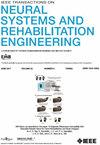Insights Into Detecting Adult ADHD Symptoms Through Advanced Dual-Stream Machine Learning
IF 4.8
2区 医学
Q2 ENGINEERING, BIOMEDICAL
IEEE Transactions on Neural Systems and Rehabilitation Engineering
Pub Date : 2024-08-28
DOI:10.1109/TNSRE.2024.3450848
引用次数: 0
Abstract
Advancements in machine learning offer promising avenues for the identification of ADHD symptoms in adults, an endeavour traditionally encumbered by the intricacies of human behavioural patterns. In this paper, we introduce three innovative dual-stream models. The proposed approach utilises a novel multi-modal dataset recorded for ADHD symptoms detection, leveraging RGB video alongside facial, body posture and hand landmark data. The fusion of these different sub-modalities within video enhances the discriminative capability of the ADHD symptoms detection system. A primary objective was to maintain minimal model depth while achieving competitive performance. Through randomised search cross-validation and a rigorous leave-one-out validation scheme, the proposed model achieves high generalisability and robust symptom identification, suggesting strong potential for application in clinical environments. Evaluation boasts the state-of-the-art performance of the proposed model, demonstrating an accuracy of 98.67%, a precision of 98.01%, and a recall of 98.88%. These metrics attest to the model’s ability to consistently identify ADHD symptoms while maintaining a minimal parameter footprint. This delicate balance provides a significant step forward in behavioural health analytics.通过高级双流机器学习检测成人多动症症状的洞察力。
机器学习的进步为成人多动症症状的识别提供了大有可为的途径,而这一工作历来受制于错综复杂的人类行为模式。在本文中,我们介绍了三种创新的双流模型。所提出的方法利用了为多动症症状检测而记录的新型多模态数据集,利用了 RGB 视频以及面部、身体姿势和手部地标数据。视频中这些不同子模态的融合增强了多动症症状检测系统的分辨能力。首要目标是在实现具有竞争力的性能的同时,保持最小的模型深度。通过随机搜索交叉验证和严格的 "留一 "验证方案,所提出的模型实现了高度的通用性和强大的症状识别能力,这表明该模型在临床环境中具有强大的应用潜力。评估结果表明,该模型的准确率为 98.67%,精确率为 98.01%,召回率为 98.88%,达到了最先进的水平。这些指标证明了该模型能够在保持最小参数足迹的同时,持续识别多动症症状。这种微妙的平衡使行为健康分析向前迈进了一大步。
本文章由计算机程序翻译,如有差异,请以英文原文为准。
求助全文
约1分钟内获得全文
求助全文
来源期刊
CiteScore
8.60
自引率
8.20%
发文量
479
审稿时长
6-12 weeks
期刊介绍:
Rehabilitative and neural aspects of biomedical engineering, including functional electrical stimulation, acoustic dynamics, human performance measurement and analysis, nerve stimulation, electromyography, motor control and stimulation; and hardware and software applications for rehabilitation engineering and assistive devices.

 求助内容:
求助内容: 应助结果提醒方式:
应助结果提醒方式:


